Your First-Time Homebuyer Checklist
“Don’t wait to buy real estate, buy real estate and wait.”
—Will Rogers, actor

As everyone knows, you can’t just waltz into a home and declare, “I’ll take it!” Long before you get to making that offer, and even before going to your first open house, there are a ton of things to do and to prepare.
Worried you might forget something? Here’s a checklist of some of the things you need to do to get ready to buy a home. We’ll delve into these topics in greater depth later in these pages, but feel free to refer back to this list to see where you are in the process.
 Save up for a down payment
Save up for a down payment

Thankfully, you don’t have to pay a home’s full price upfront. That’s what mortgages are for! However, in most cases, you will need some sort of down payment. While this sum will vary based on the size of your home, the type of loan you get, and your own personal resources and preferences, even a small down payment can be a sizable chunk of change, so start squirreling away your stash now. The sooner you start saving for a home, the better.
 Check your credit score
Check your credit score
Do not start browsing homes until you have checked your credit score. This is the number that mortgage lenders will look at to determine whether you are “creditworthy,” and thus dictates whether you’ll qualify for a home loan, and the rates you will get. The higher your credit score, the lower your interest rate—and that’s what you’re going for.
 Clean up any credit blemishes you can
Clean up any credit blemishes you can
Any surprises on that credit report? Credit errors are more common than you might think, so contact the credit bureau to correct any erroneous information. Got credit that’s less than stellar? Part 4 of this series will help you get it in shape.
 Figure out how much home you can afford
Figure out how much home you can afford
Next, make sure you are clear about how much home you can afford. The Realtor.com Mortgage Calculator can help you estimate your monthly mortgage payment, adjusting for variables such as the size of your down payment, your mortgage type, and current interest rates. You can also pursue an estimate that is more specific to you by following our next tip.
 Shop for a mortgage lender
Shop for a mortgage lender
“A prospective homebuyer should make one of their earliest stops with a reputable mortgage lender or broker, to see if they can qualify for a mortgage and confirm how much of a mortgage they likely can afford,” says real estate agent Steve Ujvagi with Keller Williams Realty Atlanta Partners. Different mortgage shops offer a wide variety of rates and programs, so shop around to find the best rate, terms, and mortgage options for you. The Realtor.com Mortgage Center can help you find a lender.
 Secure mortgage pre-approval
Secure mortgage pre-approval
Once you’ve found the mortgage that’s right for you, you’ll want to show sellers that you have what it takes to buy their home. In hot markets, mortgage pre-approval is almost required for a seller to take your offer seriously. That’s because it spells out exactly how much a lender has agreed to loan you, thus assuring the seller that you’re both
willing and able. Be sure the “pre-approval” you are offered is not merely a preliminary pre-qualification—consult with your real estate agent about that if you are working with one (our tip two items below suggests that that is a good idea).
 Sit tight!
Sit tight!
Once you’re ramping up to buy a home, it’s wise to not make any—we repeat, any—major changes in your life or, most important, your finances.
“Do not switch jobs. Do not buy a new car. Do not even buy furniture or apply for a new credit card, which could affect your credit,” says Ujvagi. “Just a credit pull alone from a car dealership or a furniture store is enough to affect your credit score and could cause you to lose a home.”
 Find a real estate agent
Find a real estate agent
There’s no reason you have to go it alone—having an agent helping you can make the whole process much easier.
“Really all the time, but especially in seller’s markets, when there are only a limited number of homes on the market, a buyer can benefit greatly from having a great real estate agent on their side, not just to make sure they find their dream home but to help through the whole home-buying process,” says Ujvagi.
Don’t just take the first real estate agent referred to you by friends or family. Instead, use online tools like the Realtor.com Find a Realtor database to sharpen and broaden your search, where you can pinpoint a professional with a proven track record who specializes in your desired neighborhood or price range. This tool can also help you find a real
estate agent who speaks another language or has specific credentials.
 Prioritize your needs vs. your wants
Prioritize your needs vs. your wants
Of course, your wish list of what you want in a home may be very long, but you need to be realistic about what elements are truly “wishes” and which ones are nonnegotiable needs—such as number of bedrooms, a fenced yard for a pet, a specific school district, walking distance to the bus stop, etc. Sometimes it’s helpful to divide your list into three categories: must-have elements, followed by items that would be nice to have (e.g., a bonus room or home office) and your dream features (e.g., an in-ground swimming pool).
 Browse listings online
Browse listings online
Check out online real estate listings on Realtor.com (or the Realtor.com app) to start to figure out what properties are available in your area.
Search by price, number of bedrooms, location, and other variables to start narrowing down your options, such as a home’s age, lot size, garage space, HOA fees, and much more.
 Check out the neighborhood
Check out the neighborhood
You’ve undoubtedly heard the adage “Location, location, location.” What that essentially means is that you’re not just buying the property you’re looking at; you’re also buying into the whole neighborhood.
That’s why you have to be certain that it has the vibe and amenities you want. Savvy homebuyers know that the best way to find out more about the area is to meet the neighbors and then visit at various times of the day and night to see what the neighborhood is really like. You can also find information about its schools, amenities, and other details on Realtor.com/local.




